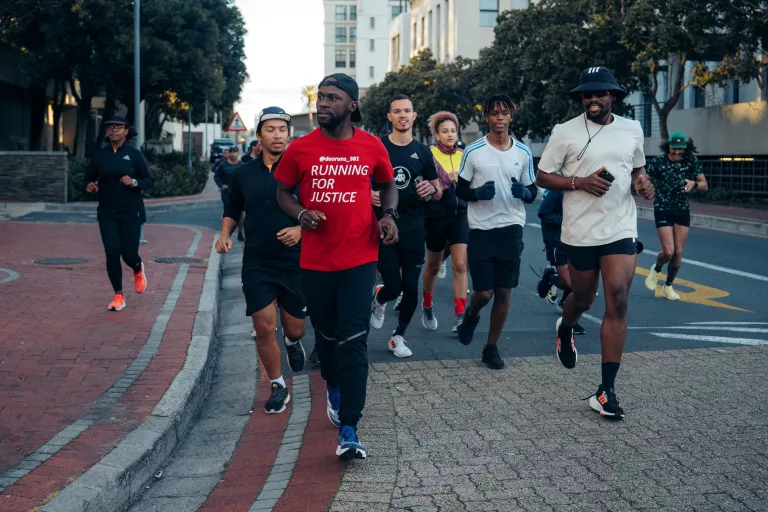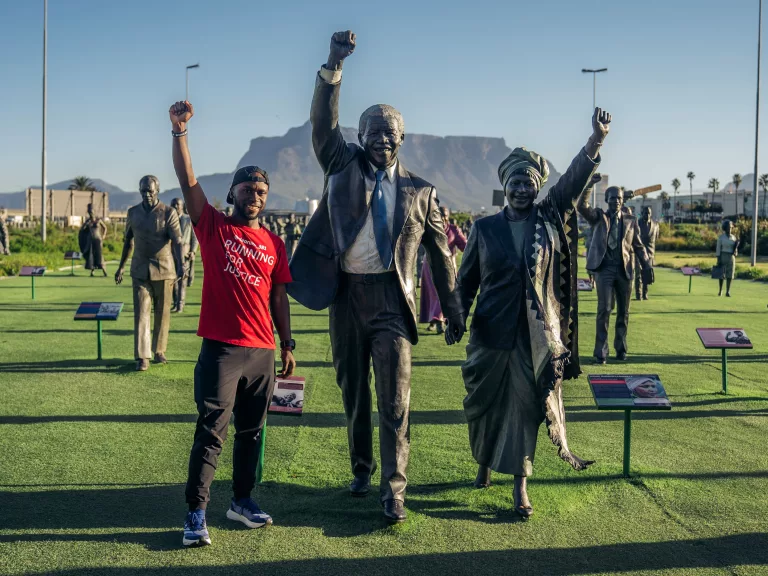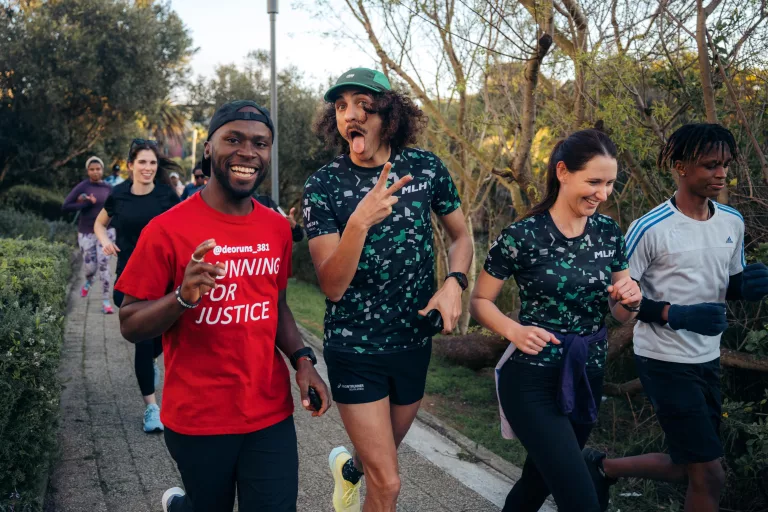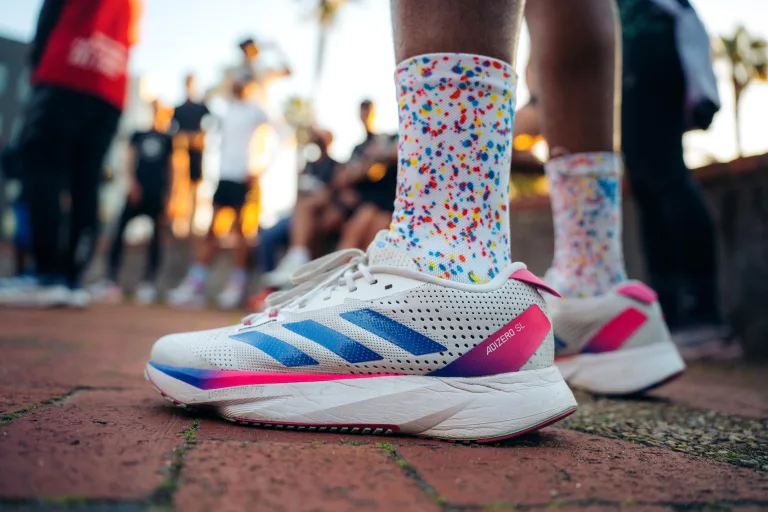[ad_1]
Ugandan-born, London-based Deo Kato will become the first person in history to run from Cape Town to London and began his journey on 24 July at the Long March to Freedom monument in Cape Town. He will run 14 570 km in 381 days, with 53 400 m of elevation, running across deserts and grasslands, covering eight times the height of Everest and everything in between.
Why 381 days? In 1955, African Americans in Alabama staged a civil rights protest for 381 days. Deo’s message is similar: to protest racial injustice and inequality within our society. It won’t be his first running streak. He has run 10km for 381 days in a row, inspiring other runners to join him in what was to become the longest protest run in history. But this challenge is greater.

Why are you doing this?
I’m running from Cape Town to London to tell the story of the history of human migration. Science has proven the first humans who ever walked on Earth were from Africa. It’s about showing that everybody who lives on this planet comes from Africa, and even though our skin colour is different, we’re all the same, we all stem from the same place, so we shouldn’t have that divide, say to each other that because you look different, you don’t belong here.
I’m not doing it because I want to, not because I think it’s fun, but because I believe it’s necessary to tell this story. We need to know our history in the best way possible. Our African history has been recounted incorrectly, especially in the global north. As a child, I learned about colonisation in Africa, not about the good things that came before, not the best. I was always learning about the negative stuff. I don’t want to teach my kids – when I have them – about colonisation and slavery. I want to show them exactly what Africa is.
I started running from the Long March to Freedom monument because I wanted to make the connection that marked freedom for many South Africans through the struggle that Nelson Mandela led to end the apartheid. Starting in the most southerly point of Africa also means I have a better chance of highlighting the human migration journey.
Being able to move on foot [through the Mediterranean, a modern-day hotbed for human migration], the same way as people migrating today, will give me a deeper understanding of the struggle people are going through today and the issues involved, such as modern-day slavery. It will also highlight the barriers put in place by the global north to stop people from migrating. Before the Scramble for Africa, which led to the colonisation and division of African territory by Europeans, there were no borders there, people could move freely.

Why do you think no one has run the length of Africa and Europe?
It’s tricky for people to wrap their heads around, and there’s a stigma that Africa isn’t developed enough for people to travel from one end to another on foot. Also, people feel it’s unsafe.
What’s your contingency plan if you can’t run part of the route?
I plan to go via Uganda because that’s where I’m from, but we’ve had to divert around Sudan due to unrest. So, the route I’m taking now is the contingency plan, so if there’s another contingency plan, that is something I’ll have to investigate!
What about logistics?
I’ll travel the length of South Africa in a rented camper van to cross borders and sleep in. One person will travel with me for support.

Your preparation has been more about getting in the right mindset than physical training.
I’ve accepted the challenge, the journey I’m going on. When I look at what’s involved, there are many things to consider. A war or conflict could break out in any country at any time, which could be challenging to navigate. It’s not as simple as diverting a route to bypass an area because that could add a few thousand kilometres adding to what I’m already running!
Then, there’s the emotional side, leaving behind loved ones back home in the UK. I won’t see them for over a year, which will be tough. It’ll be hard for them to see me because it’s far to travel, it’s expensive, and I’ll always be on the move, which means I’ll have to run a few hundred kilometres before I can join them at a major city where there’s an airport they can fly into.
You’ll have to run through the Sahara Desert. How have you prepared for those conditions?
In London, there’s no elevation or warm weather. So, I did a race in the US from Los Angeles to Las Vegas, involving one week of running consistently every day, crossing the desert in Death Valley, California, where it is super-hot. It gave me a taste of how my body handles those conditions.
How will you ensure you don’t get injured?
It all comes down to mindset, understanding this isn’t a race but a journey. I’ll work on an average daily mileage of 40 km but break it down into smaller chunks to give my body time to recover.

Five essential items you’ll carry with you on the run?
My girlfriend wrote me letters, which I’ll open on specific days during my journey.
My phone because it’s so versatile. I can translate words I don’t understand if I encounter a language barrier and continue to tell the story on social media.
I’ll have various shoes for road, trail and hot-weather conditions in the desert.
Body cream and sun lotion to prevent chafing and sun damage.
My hat – people who know me know my cap is part of my identity.
Follow Deo’s journey on Instagram
Pictures: Fahwaaz Cornelius
Follow us on social media for more travel news, inspiration, and guides. You can also tag us to be featured.
TikTok | Instagram | Facebook | Twitter
ALSO READ: The Valley of Desolation: Things you need to know before you go
[ad_2]
Source link
Jarastyle – #Deo #Kato #person #run #Cape #Town #London
Courtesy : https://www.getaway.co.za/travel-news/deo-kato-will-become-the-first-person-to-run-from-cape-town-to-london/

